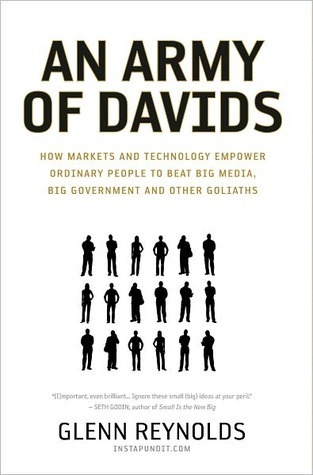What do you think?
Rate this book


306 pages, Kindle Edition
First published March 7, 2006
[Imported automatically from my blog. Some formatting there may not have translated here.]
Hey, did you know Glenn Reynolds wrote a book? I had a vague memory of him mentioning it once or twice on his blog, and I saw it at Amazon, so …
But seriously, it's good. Longtime Instapundit readers will recognize most, if not all, of the book's themes. And people worried about whether Glenn could write something coherent beyond the length of a typical blog post can rest assured. (Kidding! This isn't his first book!) Glenn's writing style is chatty and jokey.
The subtitle expresses the theme: "How Markets and Technology Empower Ordinary People to Beat Big Media, Big Government, and Other Goliaths" There are chapters on space exploration, life extension, and nanotechnology. Also one on the "Singularity", the prediction that the exponential increase in computing power will result in superhuman intelligence and unprecendented changes in everyday life.
Maybe we'll finally get those flying cars.
This is very worthwhile reading for people interested in how technological trends mold society, and the arguments are plausible.